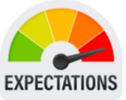Ever felt that mix of excitement and nerves before a big interview? You’re not alone. As you prep to meet your potential new boss, remember that asking smart questions during a job interview can be your secret weapon.
It’s not just about showing interest. It’s about getting the inside scoop that could make or break your decision to take the job.
But what should you ask to really stand out?
Let’s dive into the art of asking killer interview questions and how they can help you land that dream job.
- Getting Ready for a Job Interview and Why Questions Matter
- Picking the Important Stuff When Time's Short
- Types of Questions to Ask
- Making Your Questions Count
- Avoiding Generic Questions
- Time Management and Respect
- Effective Communication and Engagement
- Understanding Company Culture
- Career Development Opportunities
- Seek Mentorship Possibilities and Advancement Paths
- Clarifying Expectations
- Seek Clarity on Goals, Objectives, and Reporting Structure
- In Closing
Getting Ready for a Job Interview and Why Questions Matter
Before you walk into that interview room, consider the interview process and jot down questions that matter to you. If time’s tight, focus on the big ones. You’ll have chances to ask more later if you get the offer.
Write Down Your Questions Beforehand
Grab a pen and paper and brainstorm questions that align with what you want from the job. Understanding the job description is crucial to ensure you know the actual responsibilities and challenges of the role. Think about asking:
- The manager how they lead.
- What the CEO’s vision is.
- Smart questions that show you’ve done your homework.
Here’s a quick guide:
Questions for the Manager:
- How do you help your team grow?
- What are the chances for moving up?
- Can you describe your leadership style and how it influences the team’s productivity?
- How do you handle conflicts within the team?
- What are your expectations as a hiring manager and how do you support your team in meeting them?
Questions for the CEO:
- What sparked the idea to start this company?
- How do you stay ahead in the industry?
- What’s your vision for the company in the next 5-10 years?
- How do you foster innovation within the organization?
Smart Questions to Ask In an Interview:
- Can you tell me about a recent successful project?
- How does the team handle tough challenges?
- What’s the biggest challenge the company is currently facing, and how is it being addressed?
- How does this role contribute to the overall success of the company?
Asking these questions is essential career advice for making informed decisions about job opportunities.

Picking the Important Stuff When Time’s Short
If the clock’s ticking during your interview, zero in on questions that really matter to you and align with the company’s goals. Ask about:
- How you could grow in the role.
- What the team’s like.
- Where the company’s headed.
Skip the generic stuff. Focus on questions that show you’re genuinely interested in the job and the company.
More Time to Ask After You Get an Offer
If you receive a job offer, you’ve hit the jackpot for asking more questions. Now’s your chance to dig deeper:
- Ask about the company’s long-term plans.
- Find out about training opportunities.
- Get the lowdown on day-to-day tasks.
- Ask about how they measure success and paths for moving up.
- Inquire about the onboarding process and what your first month might look like.
- Discuss potential challenges you might face in the role and how to overcome them.
Showing You’re Serious About the Job
To really show you’re pumped about the role, ask questions that prove you’ve done your research and you’re ready to jump in. Ask about:
- The company’s future plans.
- How the team works together.
- Chances to grow and learn.
- How the company supports professional development for its employees.
- Recent company achievements and how they align with future goals.
- The company’s approach to innovation and staying competitive in the market.
Show you’re curious about the job details. Ask how they measure success and what kind of challenges you might face.
Work/Life Balance – Is This Job Right for You?
To figure out if this job’s a good fit, think about how your skills match up with what they’re looking for.
Here are some key things to consider:
- Do your skills line up with what they need?
- Ask if the role requires more than just doing an average job and how you can excel in it.
- Ask about the company culture.
- Find out about chances to grow.
- Get clear on what they expect from you.
- Inquire about work-life balance and company policies.
- Ask about the company’s stance on remote work or flexible schedules.
Showing You’ve Done Your Homework
Ask specific questions about the company to show you’re prepared and genuinely interested. Keep your questions clear and to the point.

Types of Questions to Ask
When prepping for your interview, think about asking questions about:
- Your potential boss.
- The company culture.
- How the team works together.
- Chances to grow.
- What the company’s aiming for.
Additionally, prepare your own questions to show genuine interest and to determine if the role is the right fit for you.
About Your Potential Boss
Getting a feel for the person interviewing you is key. Here are some questions to ask:
- What’s your leadership style like?
- How do you prefer to communicate with your team?
- What do you expect from your team members?
- How do you support your team’s professional growth?
- Can you share an example of how you’ve helped a team member overcome a challenge?
- What’s your approach to giving feedback and performance reviews?
Company Culture
Understanding the company culture is crucial. Here are some questions to ask:
- What are the core values that drive the company?
- How do teams work together on projects?
- How does the company support diversity and inclusion?
- What’s the approach to work-life balance?
- How does the company recognize good work?
- Can you describe a typical day in the office?
- How does the company celebrate successes and milestones?
Team Dynamics
Getting a sense of how the team works together can help you picture yourself in the role. Try asking:
- How does the team handle disagreements?
- Can you tell me about a successful team project?
- How does the team share ideas and give feedback?
- How does the team celebrate wins?
- What’s the team’s preferred method of communication?
- How does the team support each other during busy or stressful periods?
Understanding how a potential new manager will measure success is key to understanding their managerial style and company or team priorities.
Growth Opportunities
When exploring growth opportunities, it’s important to understand how you can advance. Here’s a guide for asking about growth:
- What kind of training programs do you offer?
- What does a typical career path look like in this role?
- Are there mentorship opportunities?
- How does the company support skill development?
- Can you share examples of how employees have moved up?
- Are there opportunities for cross-departmental collaboration and learning?
- How does the company support continuing education or professional certifications?
Company Goals
Understanding the company’s goals can help you see how your role fits in. Consider asking:
- What are the main goals for the next few years?
- How does this role contribute to those goals?
- What strategies is the company using for its long-term vision?
- Can you share some recent achievements?
- How does the company measure progress towards its goals?
- What challenges does the company anticipate in reaching these goals?

Making Your Questions Count
Make sure your questions are tailored to what interests you and the specific job you’re going for. Choose questions that really matter to you and avoid generic ones.
Pick Questions That Matter to You
To make sure your questions hit the mark, focus on aspects that relate to your goals and what the job requires. Here are some tips:
- Look into the company’s values and mission.
- Think about how your past experiences can contribute.
- Ask about growth opportunities that fit your long-term plans.
- Get clear on the day-to-day responsibilities.
- Consider asking about specific projects or initiatives you found interesting during your research.
- Inquire about how your role might evolve as the company grows.

Avoiding Generic Questions
Steer clear of asking generic or irrelevant questions. Instead:
- Tailor your questions to the specific job and company.
- Choose questions that align with your interests.
- Ask meaningful questions that show you’ve done your research.
- Avoid questions easily answered by looking at the company’s website.
- Focus on questions that demonstrate your understanding of the industry and company challenges.
- Ask about recent company news or developments to show you’re up to date.
Time Management and Respect
Remember that the interviewer’s time is valuable. Adjust the number of questions you ask based on how much time you have. Prioritize your most important questions.
Respecting the Interviewer’s Time
Here are some key tips to help you manage time effectively:
- Be on time for the interview.
- Answer questions clearly and directly.
- Keep the conversation focused on relevant topics.
- Be aware of the allocated interview time.
- Pay attention to non-verbal cues that might indicate time is running short.
- If you have many questions, ask which ones the interviewer thinks are most important to cover.
Adjusting Your Questions Based on Time
Consider adjusting the number of questions you ask based on how much time you have. Prioritize the most important questions that align with your interests and the job role.
Prioritizing Your Questions
When prioritizing your questions, consider starting with:
- Questions crucial to understanding the role and expectations.
- Queries about career development and growth prospects.
- Questions about company culture and work environment.
- Questions about team dynamics and future direction.
- Inquiries about immediate challenges or projects you might be involved in.
- Questions about how your performance will be evaluated.

Effective Communication and Engagement
Remember to ask clear and concise questions. Avoid long-winded queries and listen actively. If something’s not clear, don’t be afraid to ask for clarification.
Asking Clear and Concise Questions
To communicate effectively, make sure your questions are clear and to the point. Here’s how:
- Be direct in your questions.
- Use simple language.
- Avoid unnecessary details.
- Focus on questions directly related to the role or company.
- Practice your questions beforehand to ensure clarity.
- Use open-ended questions to encourage detailed responses.
Avoiding Long-Winded Questions
Keep your questions focused during the interview. Instead:
- Keep each question brief and to the point.
- Make sure each question serves a specific purpose.
- Stay on track with questions that encourage productive discussion.
- If you have a complex question, break it down into smaller, more manageable parts.
- Be mindful of the interviewer’s time and avoid asking multiple questions at once.
Listen Actively and Ask for Clarification
Listening actively and asking for clarification when needed is crucial. Here’s how to do it:
- Make eye contact and nod to show you’re engaged.
- Summarize what the interviewer said to confirm understanding.
- Ask follow-up questions to dig deeper.
- If something’s unclear, politely ask for clarification.
- Take brief notes if necessary, but maintain engagement with the interviewer.
- Use phrases like “If I understand correctly…” to ensure you’ve grasped key points.
Ask Engaging Questions and Show Curiosity
Show your curiosity about the role by asking insightful questions. Ask about:
- The day-to-day responsibilities.
- Challenges you might face.
- Opportunities for growth.
- How the role contributes to the company’s goals.
- Specific projects or initiatives you might be involved in.
- How your role might evolve as the company grows.
Express Enthusiasm and Show You Know Your Stuff
When discussing the company during your interview, remember these key points:
- Show excitement about the company’s mission and values.
- Demonstrate knowledge about recent company achievements.
- Ask insightful questions about the company’s market position.
- Express interest in how your role aligns with the company’s goals.
- Mention any company news or developments you’ve read about recently.
- Discuss how your skills and experience align with the company’s needs.

Understanding Company Culture
Make sure to ask questions about the company’s core values, how teams work together, and what the overall work environment is like.
Ask About Company Values and Team Collaboration
Asking about company values and how teams work together can give you valuable insights. Consider asking:
- What values drive the company’s decisions?
- How do teams typically work together on projects?
- What are some common team goals?
- How do team members communicate?
- How does the company foster a positive work environment?
- What team-building activities or events does the company organize?
Seek Information on Work Environment and Company Mission
Ask about the work environment and the company’s mission to understand the culture and values. This information will help you determine if the company is a good fit for you.
Explore Diversity and Inclusion Initiatives
To get a deeper understanding of the company’s values, explore their diversity and inclusion initiatives. Here are some questions to ask:
- What programs promote diversity and inclusion?
- How does the company ensure equal opportunities?
- How does the company handle discrimination or bias?
- What steps is the company taking to increase diversity in leadership positions?
- How does the company support employee resource groups or affinity networks?
Career Development Opportunities
Ask about growth opportunities and training programs within the company. Look into mentorship possibilities and paths for advancement.
Ask About Growth Opportunities and Training Programs
Explore the company’s growth opportunities and training programs. Here are key questions to consider:
- What internal training programs are offered?
- Are there opportunities for advancement?
- How does the company support skill development?
- Can you give examples of employee growth?
- How often are performance reviews conducted, and how do they tie into career progression?
Seek Mentorship Possibilities and Advancement Paths
Ask about mentorship programs and advancement paths within the organization. Look into opportunities to develop new skills and take on leadership roles.
Explore Skill Development Opportunities
Ask about skill development opportunities to enhance your professional capabilities:
- Ask about specialized training programs.
- Look into mentorship possibilities.
- Explore cross-functional projects.
- Ask about opportunities to attend industry conferences or workshops.
- Inquire about internal knowledge-sharing sessions or lunch-and-learn programs.

Clarifying Expectations
Make sure you ask about job responsibilities and how performance is measured. Seek clear understanding on goals, objectives, and who you’ll be reporting to.
Ask About Job Responsibilities and Performance Metrics
Understand the specific duties and performance standards by asking:
- What are the key responsibilities?
- What are the performance expectations for the first few months?
- How is performance evaluated?
- What tools or technologies will I be using in this role?
- How does my role contribute to the team’s overall objectives?
Seek Clarity on Goals, Objectives, and Reporting Structure
Seeking clarity on goals, objectives, and reporting structure is crucial. Here’s a guide:
Questions About Goals:
- What are the short-term and long-term goals?
- How does this role contribute to company goals?
- How often are goals reviewed?
- What support is provided to help employees meet their goals?
Questions About Objectives:
- How are objectives set for this role?
- How do objectives align with the company’s mission?
- How flexible are objectives if priorities shift?
- How are objectives communicated and tracked throughout the year?
Understand Expectations for the Role
To get a clear picture of what’s expected, ask:
- What are the main job responsibilities and performance metrics?
- How do goals, objectives, and reporting structure work?
- What does a typical day look like?
- What are the company’s expectations for your performance?
- Who will I be collaborating with most closely in this role?
- What are the most critical tasks or projects I’ll be working on initially?
In Closing
This has been a pretty exhaustive list of the different questions to ask in an interview. However, it’s important to bear in mind that asking thoughtful questions shows you’re genuinely interested and prepared. It’s your chance to find out if the job is right for you and to make a great impression. Good luck with your interview!



